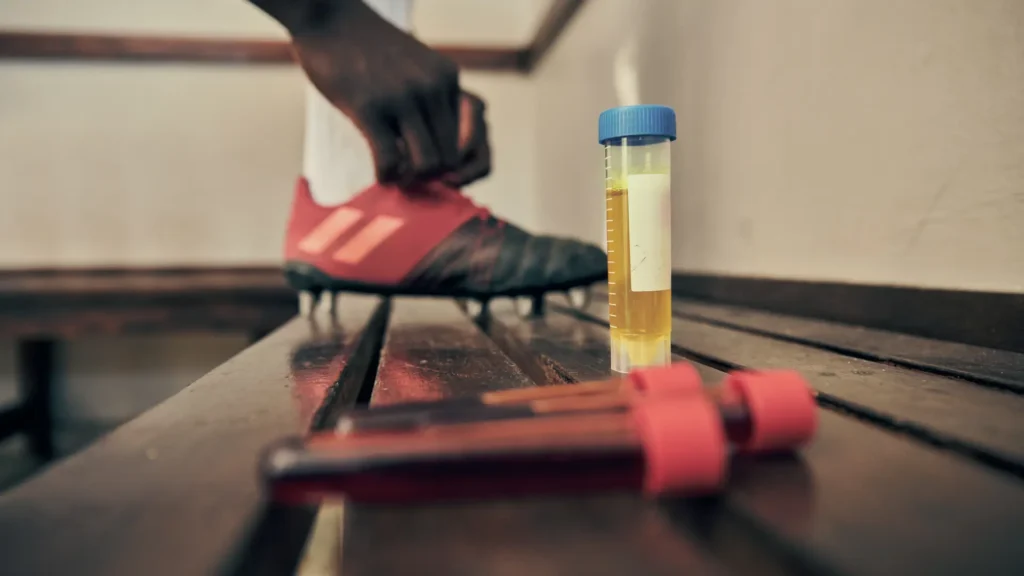Many classrooms went silent when discussing Jannik Sinner’s doping case. Students couldn’t believe someone so talented and famous could get caught up in such controversy. Their shock revealed something fascinating about how young people process modern sports pressures.
The A Level PE course goes through some of the biggest socio-cultural issues facing sport today. As part of this, we’ve discovered that sports scandals create unique educational opportunities. Students engage with complex social issues more deeply when they’re connected to athletes they admire.
When Talent Meets Reality
The Sinner case perfectly illustrates how modern sports pressures work. Contamination levels of just 86 picograms per litre triggered a global controversy. Some students initially assume that talent and fame should protect athletes from these situations. This assumption becomes a starting point for deeper analysis.
The microscopic contamination highlights how extreme modern sports pressures have become. Even the smallest oversight can have massive consequences. However, doping scandals are just one of the many socio-cultural issues facing sport today.
The Commercialisation Connection
Students naturally connected the scandal to broader issues of media pressure and commercialisation. They grasped how these forces create systemic problems beyond individual athlete choices. The data supports their instincts. Social media harassment has reached staggering levels, with LeBron James receiving approximately 123,000 abusive messages in just 12 months.
This creates a teaching moment about how technology amplifies traditional sporting pressures. When Maradona scored his famous goal in 1986, there was no social media for English fans to attack him immediately. Students see athletes as both victims of extreme pressure and accountable for their choices. The ever-developing nature of the media in sport is a highly pertinent socio-cultural issue that students tackle as part of their PE A Level.
The Educational Opportunity
Sports controversies offer something textbooks cannot: real-time case studies that students care about. The emotional investment drives deeper analytical thinking. We’ve found that students engage with socio-cultural issues more effectively when they’re grounded in familiar contexts. Sports provide that bridge between abstract theory and concrete reality.
The key is helping students see patterns. They recognise how short-term gains can damage long-term reputation, connecting this to their own academic pressures around university applications. Interestingly, students maintain intellectual distance from personal application while engaging deeply with systemic analysis. They’re interested in these issues as widespread social problems rather than personal metaphors.
Practical Applications for A-Level Success
These discussions directly support A-level PE learning, with socio-cultural issues a major part of the course. Students develop analytical skills by examining how social structures influence individual behaviour. The commercialisation of sports connects to broader economic and social theories. Students can analyse how market forces shape cultural institutions and individual choices.
We’re seeing declining participation in youth sports, with boys’ participation dropping from 50% in 2013 to just 41% in 2023. This data provides concrete evidence for students to analyse systemic pressures. The educational value extends beyond sports. Students learn to identify how social pressures operate across different contexts, developing transferable analytical skills.
Making Complex Concepts Accessible
At Study Dog, we believe controversial topics shouldn’t be avoided in education. They should be embraced as powerful learning tools when handled thoughtfully. Our approach prioritises engagement while maintaining academic rigour. Students respond positively when complex social issues are presented through familiar frameworks.
Our A Level PE resources allow students to engage in some of the most important socio-cultural issues in the sporting world today, and students can learn about gambling, violence and doping issues. We’ve learned that students are capable of sophisticated analysis when given appropriate scaffolding. The key is connecting their existing interests to academic concepts.
The Broader Educational Impact
Sports scandals reveal how interconnected modern social systems have become. Students develop systems thinking by analysing how the media, commerce, and individual psychology interact. This prepares them for A-level success while building critical thinking skills for life beyond school. They learn to question assumptions and analyse complex social phenomena.
Classroom discussions sparked by sports controversies often yield the most insightful student observations. Their natural curiosity drives deeper learning than traditional approaches. We’ve found that students remember these lessons longer because they’re emotionally invested in the examples. The learning becomes more durable and transferable.
Educational institutions should embrace these teaching moments rather than shy away from them. Controversial topics, when handled skillfully, create the most powerful learning experiences. The goal isn’t to provide simple answers but to help students develop the analytical tools to understand complex social issues. Discussion of socio-cultural issues provides opportunities for practising these essential skills.







































